All Formats & Editions
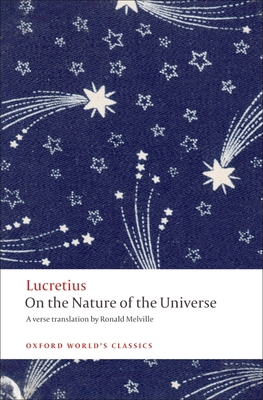
On the Nature of the Universe
This is a new verse translation of Lucretius's only known work, a didactic poem written in six books of hexameters. Melville's particularly literal translation of the use of metaphor is especially helpful to those looking at the text from a scientific or philosophical point of...
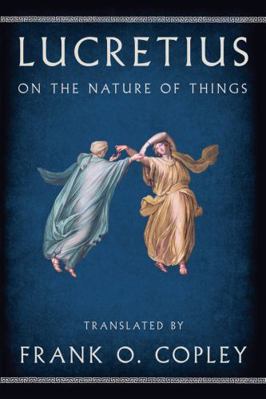
On the Nature of Things
This great poem stands with Virgil's Aeneid as one of the vital and enduring achievements of Latin literature. Lost for more than a thousand years, its return to circulation in 1417 reintroduced dangerous ideas about the nature and meaning of existence and helped shape the modern...
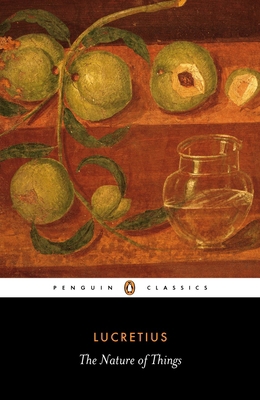
The Nature of Things
The acclaimed translation of the classic poem at the heart of Stephen Greenblatt's The Swerve "A plague . . . tests us in unique ways. . . . Only if you can face the invisible bullets all around us, and still keep calm, remain rational, and somehow find...
![Lucretius De Rerum Natura [Spanish] 8895611284 Book Cover](https://m.media-amazon.com/images/I/51-FKkn+WQL._SL500_.jpg)
Lucretius De Rerum Natura [Spanish]
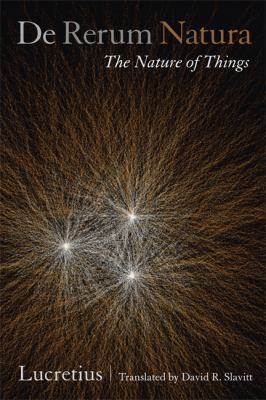
de Rerum Natura, the Nature of Things: A Poetic...
This elegant new translation at last restores the poetry to one of the greatest and most influential poems in the Western tradition. De Rerum Natura is Lucretius's majestic elaboration of Greek Epicurean physics and psychology in an epic that unfolds over the course of six books...

Lucretius: On the Nature of Things (Loeb Classi...
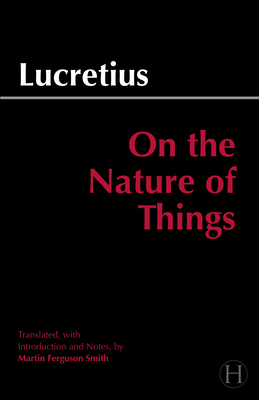
On the Nature of Things
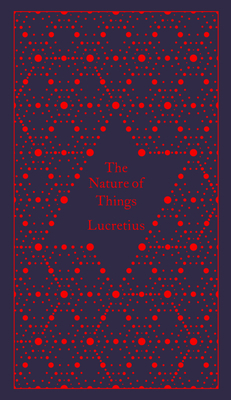
The Nature of Things
A new series of beautiful hardcover nonfiction classics, with covers designed by Coralie Bickford-Smith World-changing ideas meet eye-catching design: the best titles of the extraordinarily successful Great Ideas series are now packaged in Coralie Bickford-Smith's...
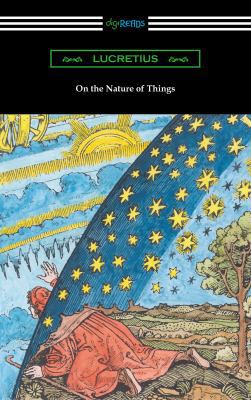
On the Nature of Things (Translated by William ...
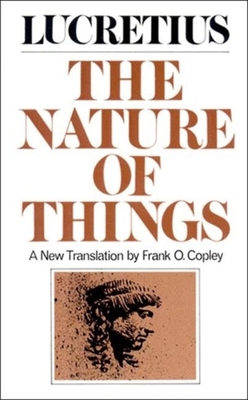
The Nature of Things
This great poem stands with Virgil's Aeneid as one of the vital and enduring achievements of Latin literature. Lost for more than a thousand years, its return to circulation in 1417 reintroduced dangerous ideas about the nature and meaning of existence and helped shape the modern...
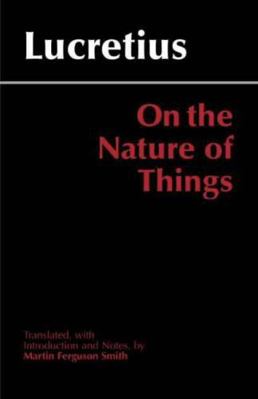
On the Nature of Things
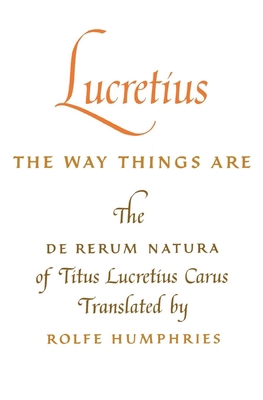
Lucretius: The Way Things Are: The de Rerum Nat...
" . . . [captures] the relentless urgency of Lucretius' didacticism, his passionate conviction and proselytizing fervour.' --The Classical Review
![On the Nature of Things [Latin] B00UJP2FMM Book Cover](https://i.thriftbooks.com/api/imagehandler/l/3A0F5BE8684CBDF8D67FFBC5A5DF69C20ADB0EBC.jpeg)
On the Nature of Things [Latin]
Atomic atheism in verse.

Titi Lucretii Cari de Rerum Natura: Libri Sex
This work has been selected by scholars as being culturally important, and is part of the knowledge base of civilization as we know it. This work is in the "public domain in the United States of America, and possibly other nations. Within the United States, you may freely...
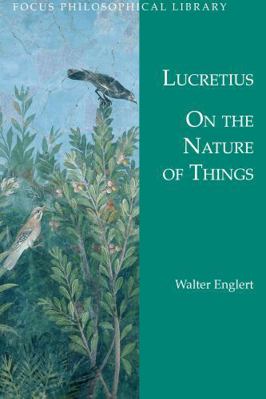
On the Nature of Things: de Rerum Natura
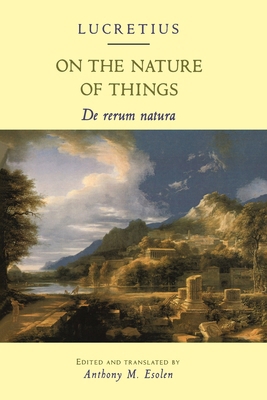
On the Nature of Things: de Rerum Natura
Titus Lucretius Carus was probably born in the early first century B.C., and died in the year 55. Little is known of his life, although two tantalizing bits of gossip were passed on by St. Jerome: that he was poisoned by a madness-inducing aphrodisiac given him by his wife,...
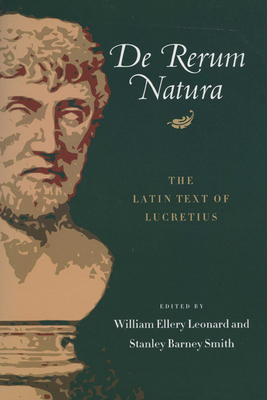
De Rerum Natura: The Latin Text of Lucretius
Titus Lucretius Carus (ca. 99-55 B. C.) is known primarily as the Roman author of the long didactic poem De Rerum Natura (On the Nature of Things). In it, he set out to explicate the universe, embracing and refuting ideas of the great Greek philosophers.
Now available...
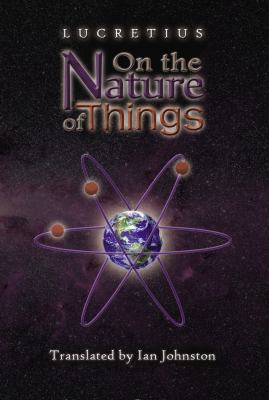
On the Nature of Things
![De la Naturaleza de las cosas: De Rerum Natura [Spanish] B08XZ8GN1J Book Cover](https://i.thriftbooks.com/api/imagehandler/l/B8303CDA41A6339C56177276F84E27E9B350128C.jpeg)
De la Naturaleza de las cosas: De Rerum Natura [Spanish]
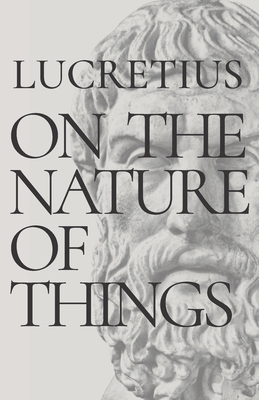
On the Nature of Things: De Rerum Natura
De rerum natura, On the Nature of Things, is a first-century BC didactic poem by the Roman poet and philosopher Lucretius with the goal of explaining Epicurean philosophy to a Roman audience. The poem, written in some 7,400 dactylic hexameters, is divided into six untitled books,...
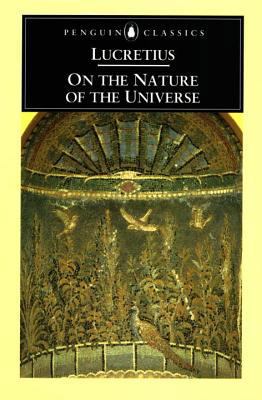
On the Nature of the Universe
A seminal text of Epicurean science and philosophy With a new introduction and commentary and a revised translation, this edition acknowledges advances in textual research and also provides more background information for the reader. Epicurians discarded both the idea of immortality...
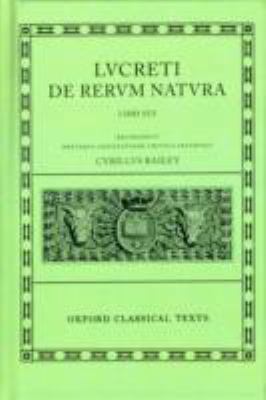
de Rerum Natura
![De Rerum Natura: Latin Text [Latin] 1523927771 Book Cover](https://i.thriftbooks.com/api/imagehandler/l/AD69947CFBA5E30AE84D5AC21D95D1B9DDCD1C6D.jpeg)
De Rerum Natura: Latin Text [Latin]

The Nature of Things
This great poem stands with Virgil's Aeneid as one of the vital and enduring achievements of Latin literature. Lost for more than a thousand years, its return to circulation in 1417 reintroduced dangerous ideas about the nature and meaning of existence and helped shape the modern...
![De la nature des choses [French] 1074607910 Book Cover](https://i.thriftbooks.com/api/imagehandler/l/D977752C15BCF69663CF6589849B2F236842F1F6.jpeg)
De la nature des choses [French]
Compos de six livres, De rerum natura (De la nature des choses) constitue une traduction de la doctrine d' picure, et vise r v ler au lecteur la nature du monde et des ph nom nes naturels, connaissance qui doit in fine permettre chacun de se lib rer de la pesanteur des superstitions...



